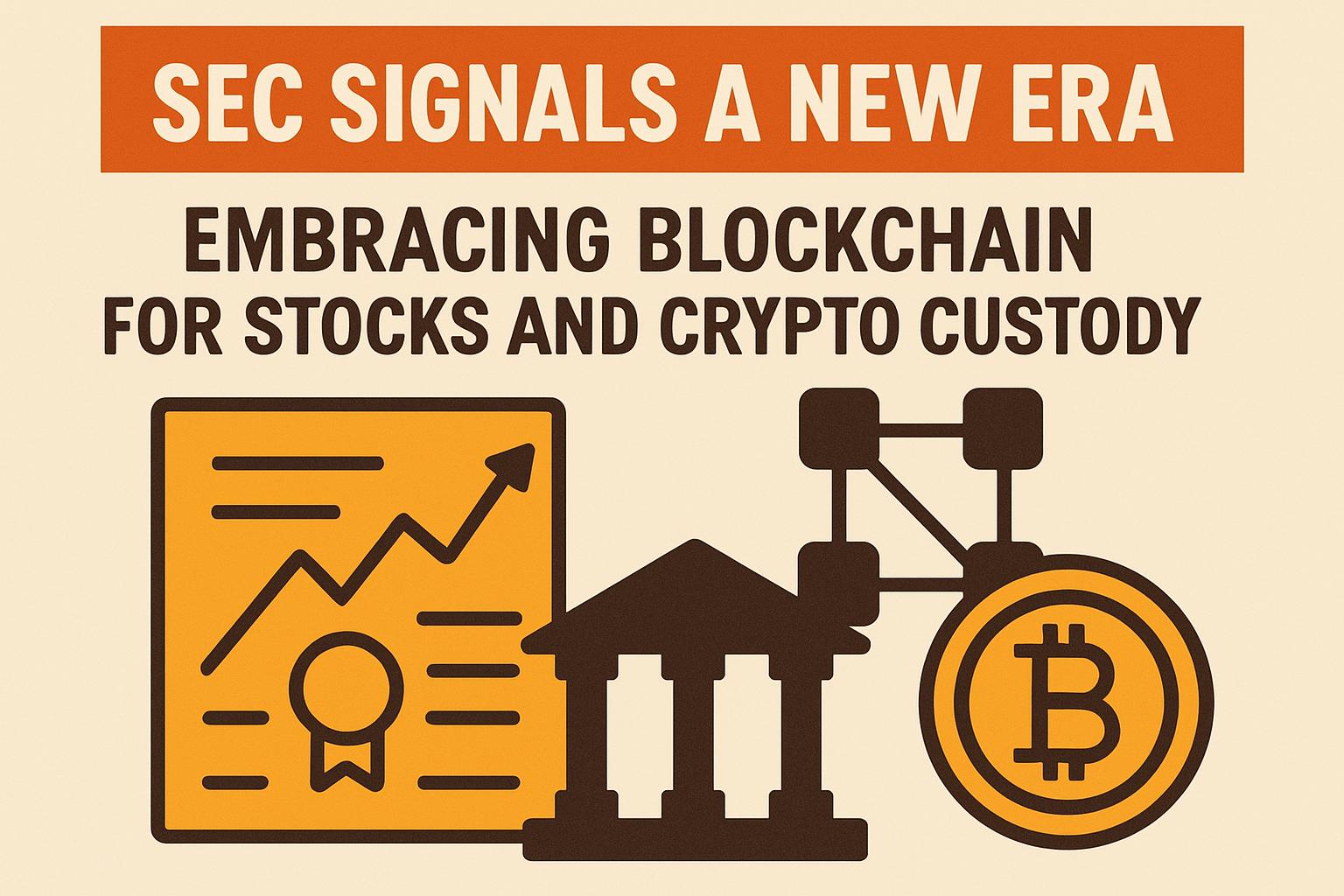The financial landscape is on the verge of a significant transformation as the U.S. Securities and Exchange Commission (SEC) hints at two substantial regulatory shifts. These proposals could pave the way for blockchain-based stock tokens to be traded on exchanges and allow state-chartered trust companies to serve as qualified crypto custodians. This marks a strategic transition from a period of skepticism to one of acceptance and integration, signaling the SEC’s evolving stance towards the crypto landscape.
Tokenizing Stocks: A New Hope for Investors
The SEC is reportedly studying a groundbreaking plan to approve the trading of “blockchain-registered stock tokens” on compliant cryptocurrency exchanges. This move, designed to offer investors the ease of trading digital stock equivalents beyond the constraints of time and geography, could redefine the traditional stock market for both conventional and crypto investors alike.
SEC Chair Paul Atkins has been a long-time proponent of tokenization as a catalyst for innovation, highlighting its potential to lower corporate financing costs and enhance the state of the U.S. IPO market. His vision aligns with the recent surge in interest around tokenized assets, demonstrated by major players like Robinhood, Kraken, and even Nasdaq, which have all either launched or sought approval for stock token services.
Yet, the enthusiasm isn’t universal. Financial powerhouse Citadel Securities has raised concerns regarding the potential risks of tokenization, cautioning that exploiting regulatory loopholes rather than genuinely improving market efficiency may not secure widespread traction but might instead undermine traditional market liquidity and investor protections.
Crypto Custody Milestone: Empowering State Trusts
In a parallel development, the SEC has also set its sights on enhancing crypto asset custody. Recent official documents reveal that investment advisors and compliant funds can now manage crypto assets via state trust companies, with these entities viewed as banks under the Investment Advisers Act.
This change is a welcome breath of fresh air for the digital asset sector, providing clearer guidelines long sought by industry professionals. The decision opens up the crypto custody market to a broader range of participants and provides funds with greater pathways to manage these assets, elevating firms like Coinbase, Ripple, and BitGo to the realm of qualified custodians.
The SEC’s Shift: From Suppression to Integration
Historically, the SEC has maintained a stern approach, notably through measures like “Operation Choke Point 2.0,” curtailing the relationship between traditional banks and crypto firms. This has often clouded the future of cryptocurrency development with uncertainty.
However, the new regulatory signals, from “relaxing stock tokenization” to “recognizing state trust company custody rights,” reflect the SEC’s adaptive policy aligning with political shifts. These recent advancements not only aim to resolve the longstanding challenges of integrating traditional assets onto blockchains and securing compliant custody but also broaden the trading methods in capital markets, offering a solid legal framework for financial institutions and investors alike.
This blog post originally appeared in ABMedia.

![[News] Bitcoin at a Turning Point? 10x Research Signals a Bullish Macro Shift Ahead](https://cryptoexplores.com/wp-content/uploads/2025/06/new20250616.jpg)
![[News] Binance Lists $HOME, the Gas-Free, Bridge-Free All-in-One DeFi App](https://cryptoexplores.com/wp-content/uploads/2025/06/news20250617.jpg)